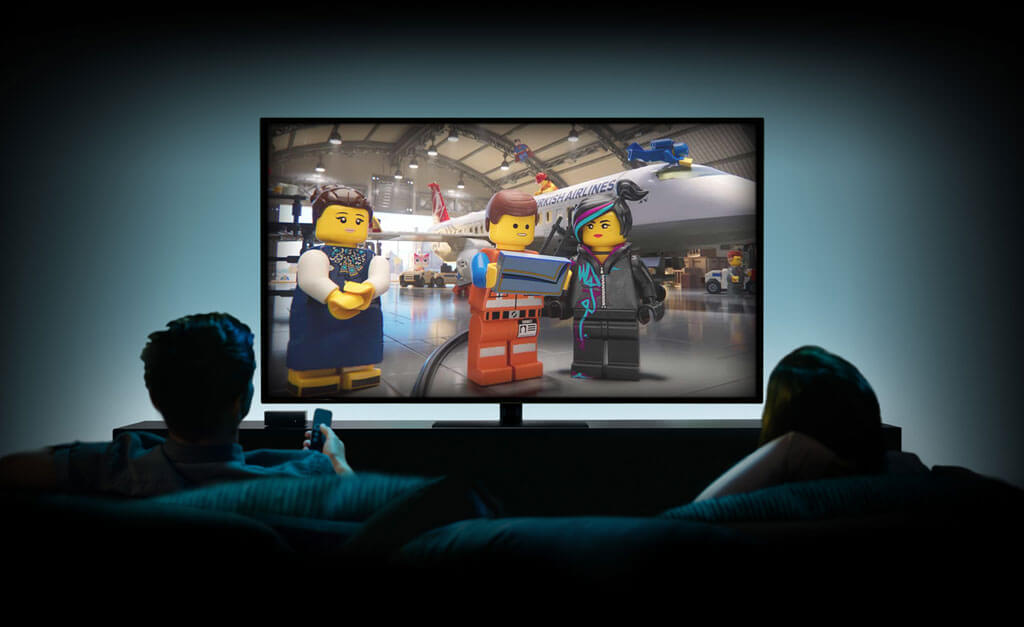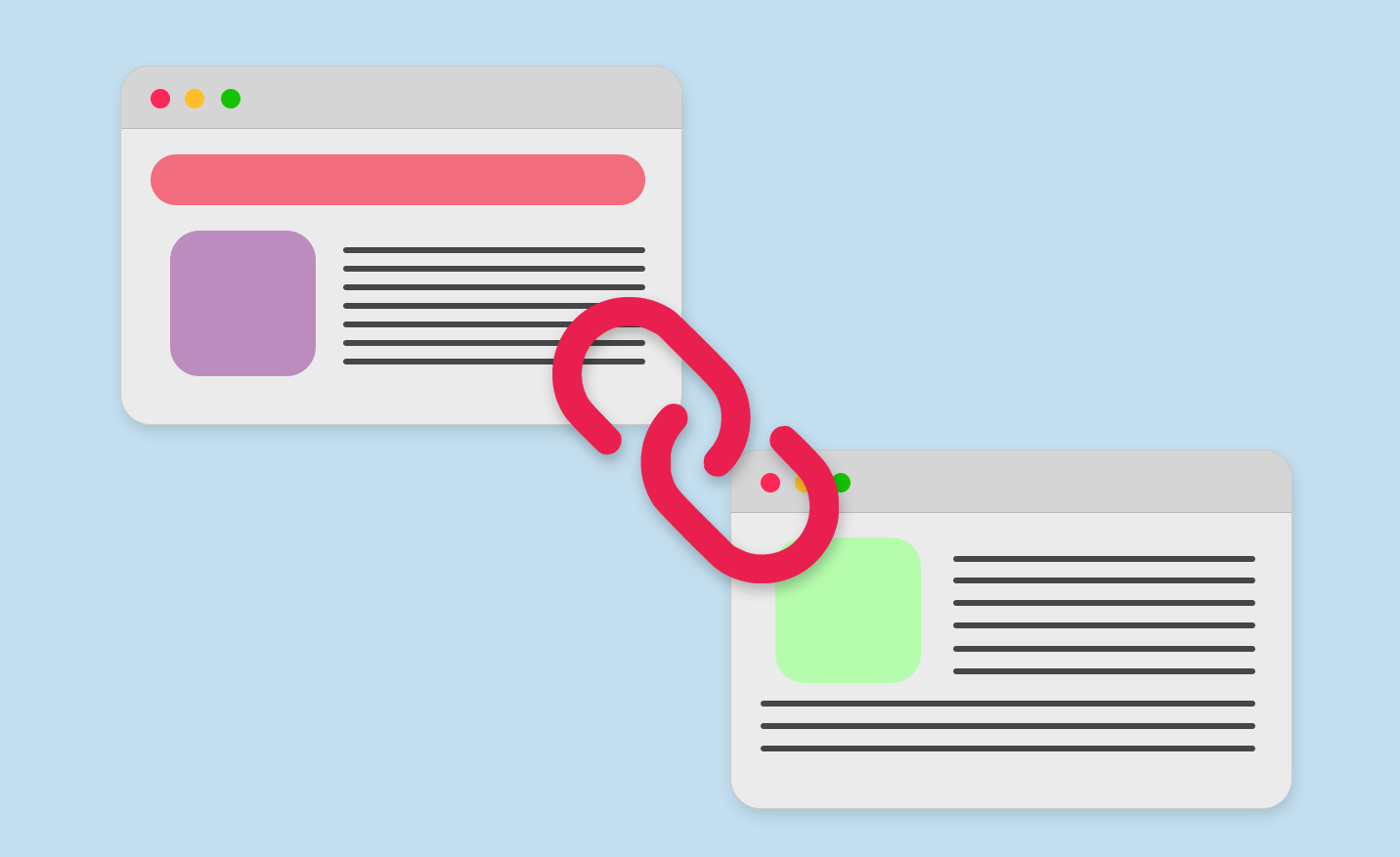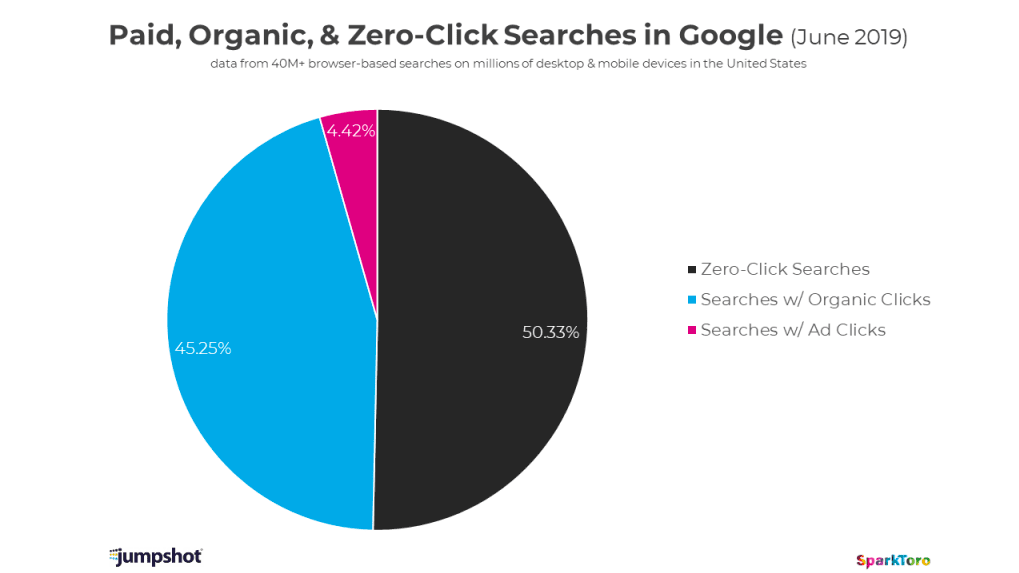
The number of requests to Google without clicking on one of the results was 50.33% in June 2019. This info comes from a study by marketing research company Jumpshot, that analyzed 40 million search queries in browsers on desktop and mobile devices in the United States.
Another 45.25% of Google searches result in clicks on links to websites, and 4.42% – with clicks on advertisements. According to Jumpshot, the number of “zero” clickthroughs in the search has been growing since 2016 – the rate was about 43.9% back then. In the first quarter of 2016, users clicked on links to other sites in 54.01% of cases, and in 2.1% – on advertising.
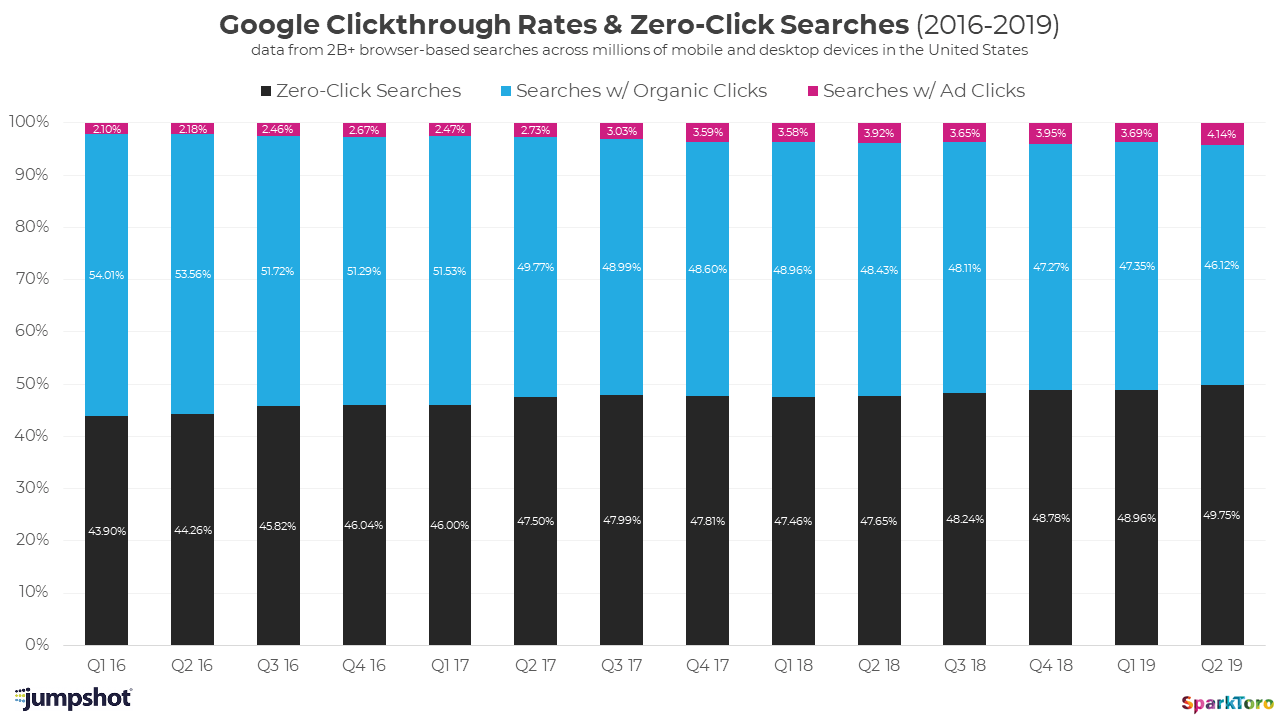
As Jumpshot research shows, the biggest changes have occurred on mobile devices. The number of “zero” clicks in mobile browsers in the United States increased from 55.11% to 61.94% from January 2016 to June 2019. The number of referrals to sites was 44.89% and 38.06%, respectively, and clicks on advertising – 3.34% and 11.38%.
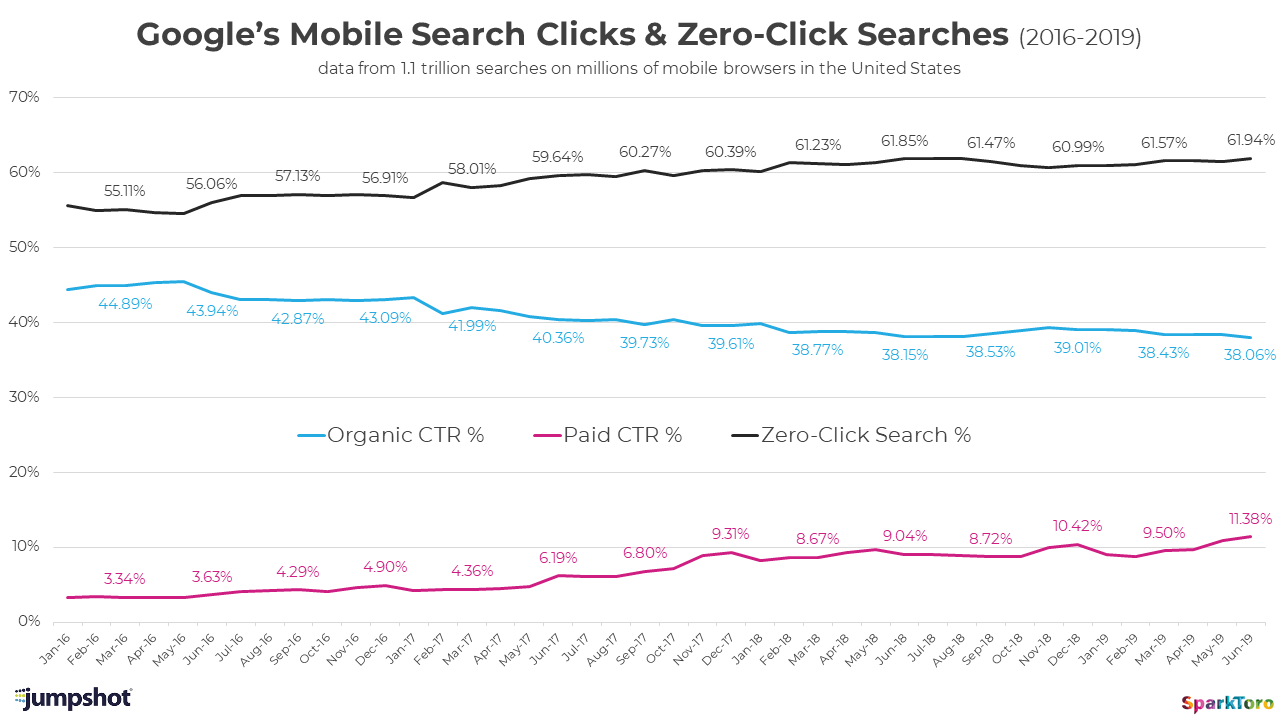
Similar data on search queries in desktop browsers has not changed for almost three years, according to Jumpshot.
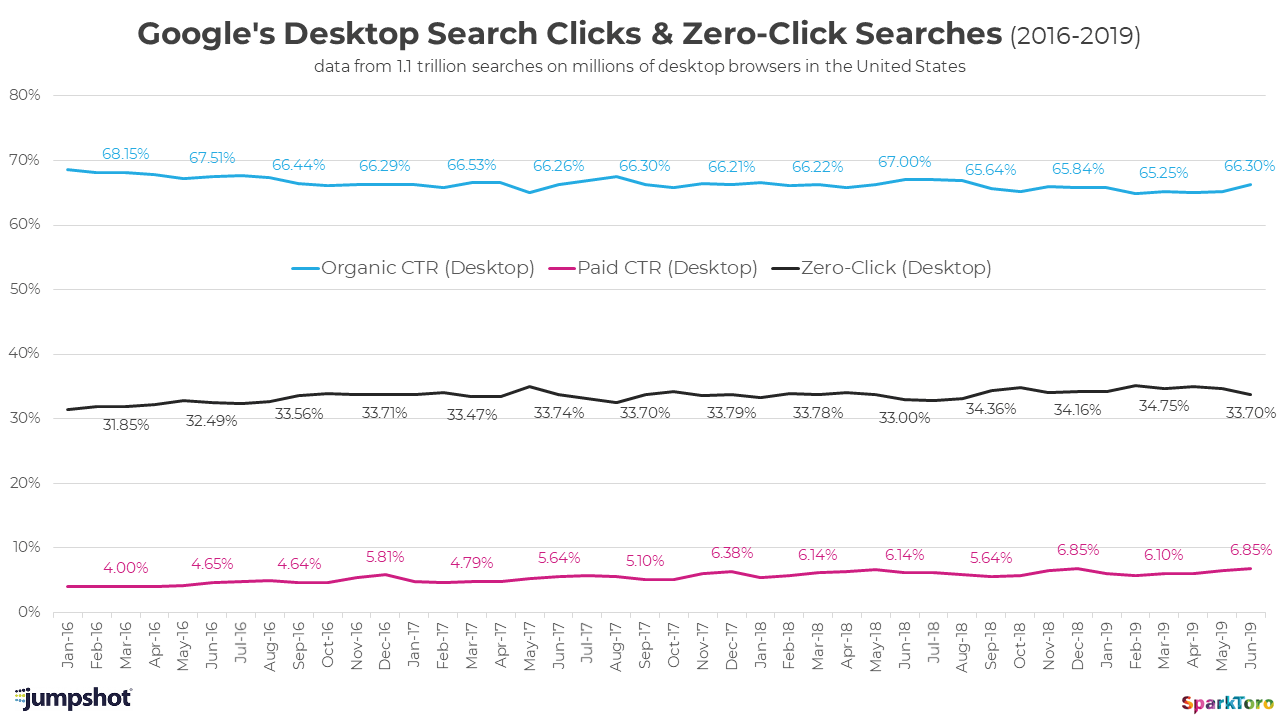
As you can see on this chart, Zero-click sits around 32-33% since 2016 and the clicks from paid ads went from 4 to almost 7% in the last three years. Organic clicks slightly decreased by 2% over the same period of time.
So what does it all mean? Are we doomed?
Relax and don’t worry about this fact too much. While this seems like our websites are slowly starting to get getting less and less traffic from Google search, it’s not quite true and let me explain why.
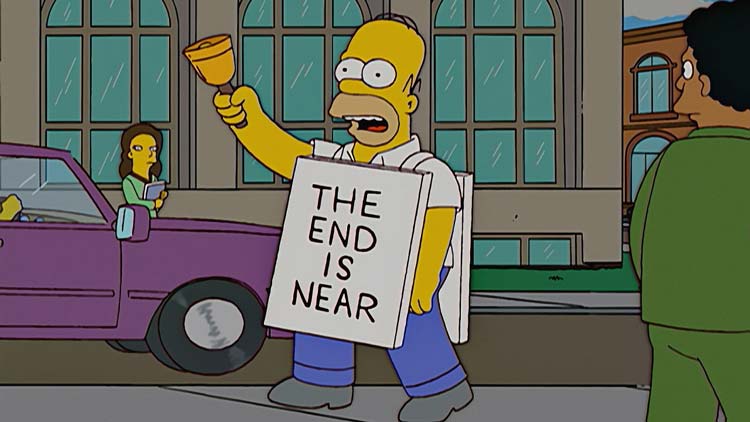
First of all we need to understand the nature of Google searches and how they change over time. Back in the day Google search would only show you a page with search results: a bunch of links that you can click on in order to get the information that you’re looking for. These days Google and other search engines got a lot smarter and can help answer simple questions on the spot.
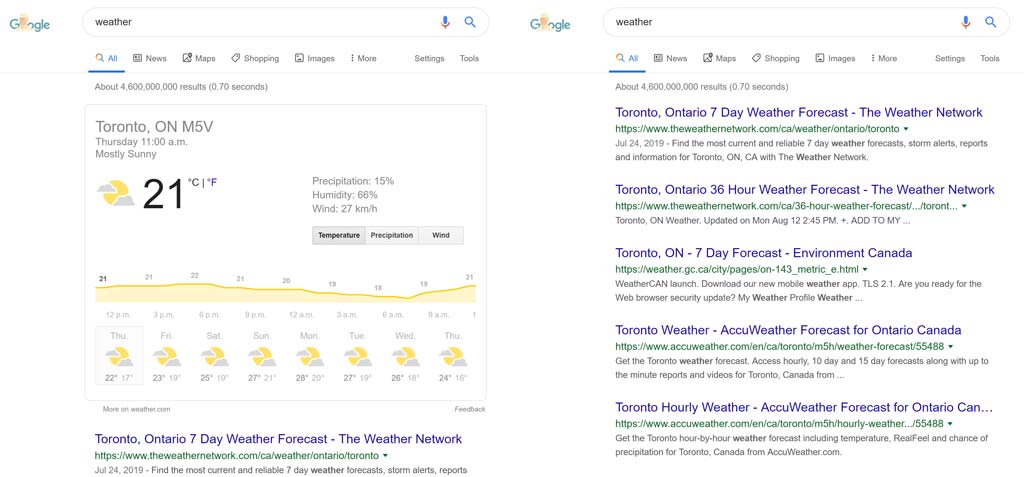
The same thing happens if ask Google “How old is Brad Pitt”, “What is the tallest building in the world” or “How many calories in a green apple”. What happens is Google is trying to optimize Google Search results page for the best user experience – saving us a click, basically. And this would be a category of website that these changes heart the most, because if you’re writing long form content – Google simply can’t get an answer to question in just 1-2 sentences.
New way of searching
There is also an abundance of search queries that weren’t happening in the past. Google changed the way we search these days, let me show you a couple of examples:
- Coffee shops near me – rather new feature of Google search that let’s you find certain businesses nearby
- 2899 + 13% – for a lot of people it’s faster to use Google as a calculator
- Facebook – you wouldn’t believe how many people search for “Facebook” in order to open facebook. In fact “Facebook” was one of the most popular search queries in July 2019. Moreover, in the top 10 you can find queries like: “amazon”, “youtube”, “twitter”, “gmail”, “ebay”, “netflix” and even “google” itself!
- Local time Hong Kong – it’s faster to ask Google then opening your “world clock” app
- How to say I Love you in French – people use Google search as a translator for a while, it also helps you understand how to pronounce words in different languages
- Spellchecking – Google search is a great tool to check if it’s “Hankerchief” or “Handkerchief”, “embarassment” or “embarrassment” etc
Most of these search queries haven’t occurred in the past at all and right now people have no intent in visiting any websites when they are searching these things – they are just using Google as an app that knows answers to their questions. The thing is that even if you receive traffic from some of these searches it won’t really matter to your business too much since you won’t be able to convert it to a customer and that’s the final goal of search engine optimization – get on the top positions in order to gain more traffic that you can convert into customers. On the other hand, if you business model is built on showing advertisements on your website you’re probably getting hurt by these “quick answers” from Google. In this case we suggest you focus on long form content.
Google Search is getting bigger
You should also keep in mind that the amount of search queries keeps going up all the time. One of the most important factors is that there are more and more internet users every year, and most of them start with a mobile device. So while percentage of “zero” clickthroughs is getting higher it doesn’t necessarily mean that you’re getting less traffic to your website.
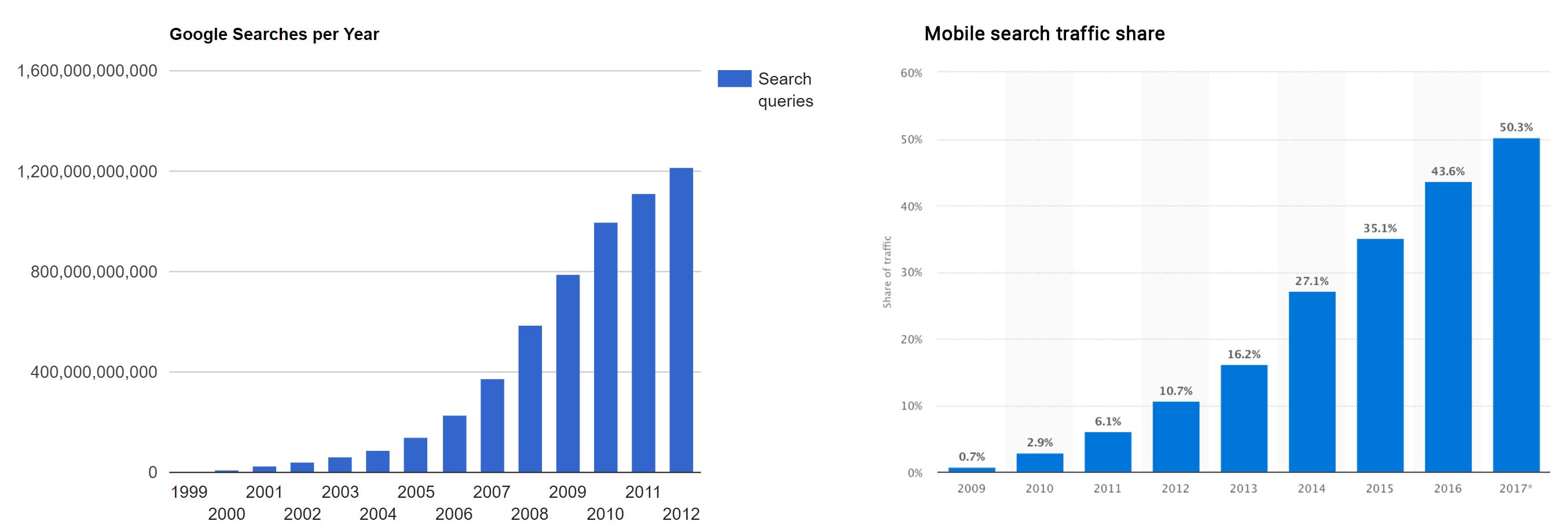
Also, often times these new features motivate people to click on your link, because they get a glimpse into the quality of content that you’re providing and want to get more.
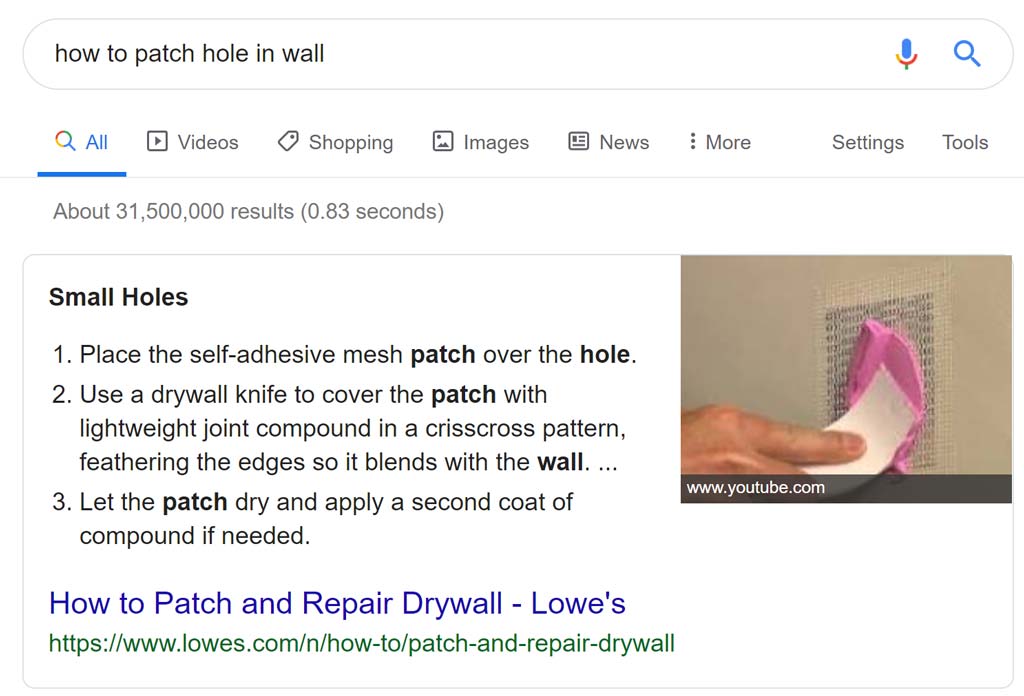
In the example above Google provides a concise answer to your question, but that is not enough information for you to become an expert and fix the wall yourself, so you decide to continue reading this article since you clearly see that it provides answer, but the article can also provide step-by-step instructions, a video and maybe even comments from other users that attempted to patch a hole in drywall.
How to improve your chances of getting a click from Google Search
While in a lot of cases no matter what you do, you won’t be able to make users to go to your page if they didn’t have any intent of doing so (like when they are using Google Search as a calculator), but you can improve your chances of getting a click when Google shows a short answer to their question by optimizing titles for SEO. I wrote a huge article with tons of tips and tricks on how to make your titles stand out and make sure that you’re using 100% of what Google search result page is proving and common mistakes that a lot of users are making all the time. You should also think about images that you’re using on your pages – sometimes Google shows a small preview image (like in example above with Drywall patching). If you use a generic cheesy stock photo of handyman that everybody saw hundreds of times already – your chances of getting a click will go down.
Google is getting smarter, so should we!
Google and other engines improve their algorithms and add new features all the time, that’s whey search engine optimization isn’t something that you can learn once and keep doing over and over again that’s why you have to follow updates and news about SEO if you want to be on top of things. You should always keep working on your website’s content and improve SEO constantly in order to get the best results.


